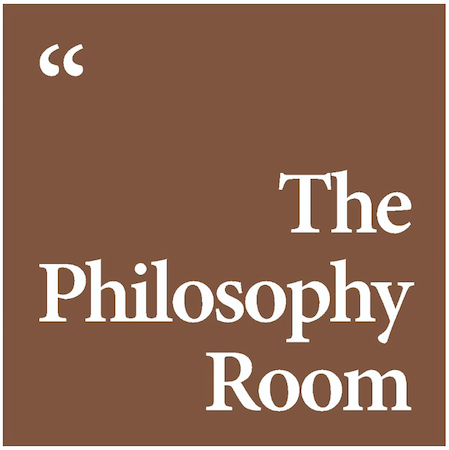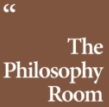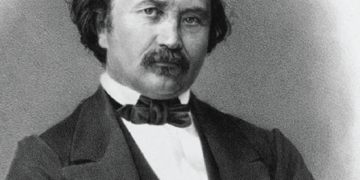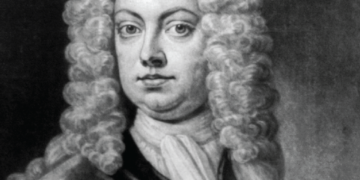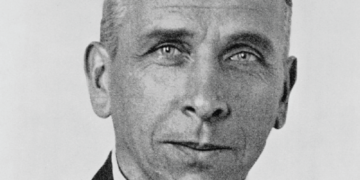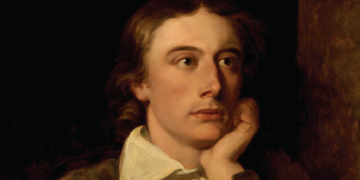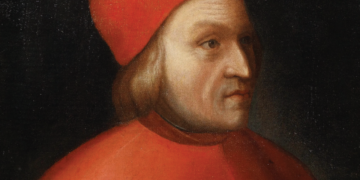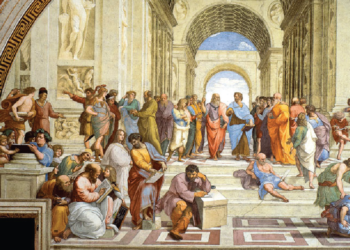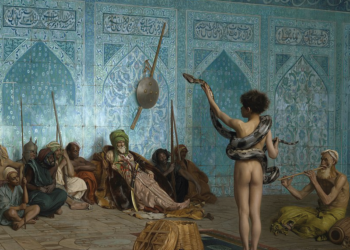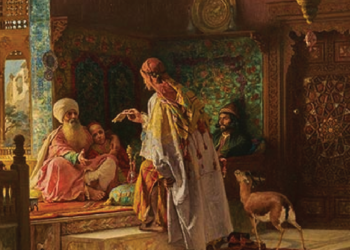Marko Marulic
1) His Biography
Marko Marulić, often referred to as the “father of Croatian literature,” was born on 18 August 1450 in the city of Split, then part of the Venetian Republic. He came from a respected noble family and received a thorough humanist education, studying Latin and classical authors from an early age. This grounding in classical scholarship would inform much of his later writing, both in content and form. His intellectual formation coincided with the flourishing of Renaissance humanism across Europe, and Marulić emerged as one of its key proponents in the South Slavic context.
Marulić lived during a period of significant political and religious upheaval. The fall of Constantinople and the advancing Ottoman Empire deeply impacted his worldview, as did the internal decay of Christian institutions. These events shaped his strong emphasis on Christian morality, individual piety, and social reform. Although he travelled little compared to other humanists of his time, his literary reputation extended well beyond the Dalmatian coast, eventually reaching courts and religious centres across Europe.
Despite being trained as a lawyer and occasionally serving in administrative roles in Split, Marulić devoted much of his life to writing. He composed works in Latin and Croatian, often blending classical forms with Christian ethics. His literary output reflects his desire to fuse the spiritual legacy of Christianity with the rhetorical elegance of ancient literature. His commitment to moral instruction through literature was driven by a belief that writers bore a responsibility to improve society by guiding readers towards virtue.
One of the most significant episodes of Marulić’s life was his composition of De Institutione Bene Vivendi per Exempla Sanctorum (“Instruction on How to Lead a Virtuous Life According to the Examples of the Saints”), which became one of the most widely read devotional books in Europe during the sixteenth century. It was translated into several languages and reportedly read by figures such as St Thomas More. Its popularity solidified Marulić’s reputation as a moralist and a Christian thinker of international stature.
Marulić was also a poet, and his Judita, written in Croatian in 1501, is considered the first major literary work in the Croatian language. Based on the Biblical tale of Judith, the poem combined a nationalistic spirit with classical form and Christian piety. Its publication helped codify the Croatian literary language and marked a turning point in the history of South Slavic literature. Through Judita, Marulić also demonstrated his ability to adapt classical epic structures to reflect contemporary concerns and moral instruction.
Though he lived a relatively quiet life by the standards of the more politically engaged humanists of his day, Marulić maintained an extensive correspondence with other scholars and church officials. His writings often reflect a concern for the moral failings of his contemporaries and an urgent call for renewal rooted in Christian virtue. This reformist tendency placed him in alignment with broader humanist critiques of corruption within the Church, although he remained a loyal Catholic throughout his life.
Marulić died on 5 January 1524 in Split, having spent most of his life in the city of his birth. His legacy continued to grow in the centuries after his death, both within Croatia and across Europe. While he is celebrated nationally for his pioneering use of the Croatian language, his Latin works earned him respect in broader humanist circles. Today, Marulić is recognised not only as a founder of Croatian literature but also as a thinker whose ethical and literary contributions resonate beyond national borders.
2) Main Works
Judita (1501)
Written in Croatian, Judita is Marulić’s most celebrated vernacular work and the cornerstone of Croatian literature. It is an epic poem based on the Biblical story of Judith, the Jewish heroine who beheads the Assyrian general Holofernes to save her people. Marulić’s version spans six books and is composed in dodecasyllabic verse. The poem combines elements of classical epic structure with Christian moral themes and national pride. Though the setting is ancient, it subtly addresses the Ottoman threat of Marulić’s own time, making it a patriotic as well as religious work.
De Institutione Bene Vivendi per Exempla Sanctorum (c. 1506)
This Latin moral guide translates as “Instruction on How to Lead a Virtuous Life According to the Examples of the Saints.” It presents a series of moral lessons drawn from the lives of Christian saints and biblical figures, aimed at guiding readers toward ethical behaviour. Divided into seven books, the work combines scriptural citation with narrative and commentary. It was hugely popular across Europe, with multiple editions and translations into languages such as Italian, German, and Portuguese.
Evangelistarium (1516)
The Evangelistarium is another Latin work focused on Christian ethics and devotion. It offers reflections on the Gospels, encouraging readers to cultivate a virtuous life grounded in the teachings of Christ. Composed in elegant, humanist Latin, the book was designed for a literate European readership, and it enjoyed considerable circulation. Like many of Marulić’s moral treatises, it was intended for both clerical and lay audiences.
Psichiologia de Ratione Animae Humanae
Often cited as one of the earliest uses of the term “psychology” in a literary context, this short Latin treatise explores the nature of the human soul. Marulić considers the soul from a philosophical and theological perspective, examining its faculties, virtues, and relation to God. The text reveals his interest in blending classical psychology with Christian theology, a typical endeavour of Renaissance humanists.
Davidiad (unfinished)
The Davidiad is an epic poem in Latin about the life of King David. Intended to echo the style of Virgil and other classical poets, the work combines biblical narrative with epic conventions. Although incomplete and less widely known than his other writings, the Davidiad reveals Marulić’s ambition to elevate biblical stories to the stature of classical epics, reaffirming the dignity of Christian subject matter in literary form.
Carmen de Doctrina Domini Nostri Iesu Christi Pendentis in Cruce (Poem on the Teachings of Our Lord Jesus Christ on the Cross)
This Latin poem reflects on Christ’s final words and the spiritual lessons they impart. It blends meditative lyricism with theological reflection, encouraging a deeper engagement with the Passion narrative. The poem underscores Marulić’s ability to convey profound religious feeling within structured poetic form.
Epistola ad Adrianum de Laudibus Herculis
This lesser-known Latin letter praises the classical hero Hercules and considers his symbolic significance in Christian moral terms. Marulić attempts to reinterpret classical mythology through a Christian lens, a common Renaissance humanist strategy. The piece serves as a testament to his engagement with ancient texts and his effort to reconcile them with contemporary religious values.
3) Main Themes
Christian Morality and Virtue
One of the dominant themes in Marulić’s work is the cultivation of virtue through the imitation of Christ and the saints. In texts like De Institutione Bene Vivendi and Evangelistarium, he presents Christian ethics as a practical guide for daily life. He emphasises humility, patience, charity, and chastity as essential virtues, repeatedly urging his readers to renounce worldly vanities in favour of spiritual truth. His writings serve as handbooks for inner moral reform, appealing to both laypeople and clerics.
The Struggle Between Good and Evil
Marulić’s works often portray the world as a battleground between good and evil forces, with the soul caught in between. In Judita, this cosmic conflict is symbolised through Judith’s heroic stand against Holofernes, a tyrant figure embodying sin and oppression. Marulić portrays evil as both an external threat—such as the encroaching Ottomans—and an internal temptation. His characters and moral examples often face trials that require spiritual strength and divine assistance to overcome.
Human Frailty and the Need for Redemption
A deeply Augustinian view of human nature permeates Marulić’s work. He underscores the weakness of mankind, prone to sin and easily misled by pride, lust, and ambition. However, he balances this with a belief in divine mercy and the possibility of redemption through sincere repentance and faith. His meditative poems and moral treatises frequently reflect on mortality and the transitory nature of earthly life, pushing readers toward contemplation of the eternal.
The Heroism of Faith
Marulić frequently celebrates spiritual heroism, particularly the courage and fortitude required to defend one’s faith in a corrupt or hostile world. This is seen most clearly in Judita, where Judith’s act is not merely political but rooted in unwavering belief in divine justice. His saints, martyrs, and biblical figures are not idealised passively but portrayed as active participants in moral and spiritual struggle, models for the reader to emulate.
National Identity and Cultural Preservation
While grounded in universal Christian values, Marulić’s works also reflect a strong sense of Croatian cultural identity. By writing Judita in the Croatian vernacular, he not only contributed to the development of national literature but also offered a moral rallying point during a time of Ottoman threat. His use of familiar biblical themes served to bolster the morale of his contemporaries while subtly asserting the resilience and dignity of his homeland.
The Synthesis of Classical and Christian Thought
As a Renaissance humanist, Marulić sought to reconcile classical philosophy with Christian theology. He admired Stoic and Platonic ideals, particularly their emphasis on self-discipline and the pursuit of truth, yet always subordinated them to Christian doctrine. His references to figures like Cicero, Seneca, and Aristotle are integrated seamlessly with scriptural teachings, demonstrating that wisdom can be found in both pagan and sacred sources when rightly understood.
The Role of Literature in Moral Education
Underlying much of Marulić’s output is a belief in literature as a vehicle for ethical instruction. Whether writing epics, essays, or meditations, he imbued his texts with didactic intent. Literature, in his view, should not merely entertain or display erudition but should challenge the reader to examine their conscience and strive for moral excellence. This belief aligns with his broader concern for the moral condition of society and the reform of the individual.
4) Marulic as a Writer
Marko Marulić stands as one of the most significant figures in the early history of Croatian literature, blending the literary traditions of the Renaissance with the spiritual and moral concerns of the late Middle Ages. As a writer, Marulić was deeply influenced by the humanist ideals of the Renaissance, which emphasised a return to classical sources and an appreciation for the dignity of human beings, yet his work also maintained a strong Christian moral framework. His ability to synthesise classical and Christian elements made him a bridge between two intellectual worlds—one rooted in antiquity and the other in Christian tradition—thus shaping the course of Croatian and broader Slavic literature.
Marulić’s approach to writing was characterised by both his erudition and his dedication to moral instruction. His use of Latin as a scholarly medium reflects the intellectual aspirations of the time, while his decision to write in Croatian, especially with works like Judita, reflects a desire to contribute to the development of a distinct national literary tradition. By writing in the vernacular, Marulić not only made his works more accessible to a wider audience but also helped establish Croatian as a literary language, giving rise to a new wave of Croatian literature that would continue to evolve for centuries. Judita stands as one of the earliest and most prominent examples of Croatian literature in verse, and its blend of Christian piety with classical literary forms laid the foundation for future generations of writers in the region.
As a poet, Marulić was skilled in both Latin and Croatian, using his mastery of classical poetic forms to convey Christian moral themes. His works exhibit an intellectual depth that reflects his education and engagement with contemporary European humanism. His poetry is not merely an artistic endeavour but a vehicle for ethical reflection, where the poet is seen as a moral teacher guiding his readers through complex theological and philosophical issues. Marulić’s literary style is characterised by its elegance and its ability to synthesise classical rhetoric with the simplicity of moral teaching, allowing for both intellectual appeal and spiritual edification.
Marulić’s works were not solely confined to nationalistic or religious themes. He was also a writer deeply interested in the human condition, grappling with the nature of the soul, moral corruption, and the possibility of redemption. His Latin treatises, such as Psichiologia de Ratione Animae Humanae, explore the complexities of the human soul from a Christian perspective, showing his engagement with intellectual traditions beyond the local or national context. His ability to blend philosophy with theological reflection demonstrates his sophistication as a thinker and a writer, capable of engaging with both ancient texts and contemporary theological debates.
Furthermore, Marulić’s works reveal an awareness of the political and social challenges of his time. Living in a region under constant pressure from the advancing Ottoman Empire, his writings—especially Judita—served not only as moral guides but also as subtle forms of political resistance. By celebrating the bravery of Judith in the face of tyranny, Marulić may have been encouraging his readers to draw strength from their own faith and heritage as they confronted the external threats posed by the Ottomans.
Marulić’s influence as a writer extended far beyond his lifetime, especially in the development of Croatian literature and the broader tradition of Christian humanism. His works were disseminated across Europe, influencing scholars and writers in Italy, Germany, and beyond. His Latin writings were particularly valued in humanist circles, while his Croatian texts laid the groundwork for the growth of the Croatian literary language. As a writer, Marulić stands out not only for his stylistic elegance but for his unwavering commitment to the moral and intellectual ideals of his time, making him a central figure in both the Croatian literary tradition and European intellectual history.
5) His Legacy
Marko Marulić’s legacy endures as a cornerstone of Croatian literature and a pivotal figure in the development of humanist thought within the broader European context. As a writer, theologian, and philosopher, Marulić bridged the medieval and Renaissance periods, leaving an indelible mark on the literary and intellectual landscape of his time. His contributions to Croatian literature, both in the vernacular and in Latin, have made him an enduring symbol of the country’s cultural heritage, while his works have resonated far beyond the borders of the former Yugoslavia, influencing scholars and writers across Europe.
Marulić is most renowned for his role in establishing Croatian as a literary language. His epic poem Judita, written in the Croatian vernacular, was a groundbreaking work that not only helped to elevate the language but also set a precedent for later Croatian writers. By writing in Croatian, Marulić made a conscious effort to cultivate and preserve his national culture through literature, and Judita remains one of the earliest and most significant examples of Croatian literature. His contribution to the development of the Croatian language was not simply linguistic but also cultural, as he crafted a narrative that was both rooted in national identity and aligned with broader Christian and humanist ideals.
Beyond his work in Croatian, Marulić’s Latin writings solidified his place in the broader intellectual currents of Renaissance Europe. His devotional works, such as De Institutione Bene Vivendi and Evangelistarium, were widely circulated and translated into several languages, earning him recognition as a moral philosopher and Christian humanist. These texts were not only influential in the religious and intellectual circles of his time but also became an integral part of the humanist tradition, where they were appreciated for their synthesis of classical learning and Christian ethics. Marulić’s writings played a role in the broader European movement towards reform and the integration of classical philosophy into Christian theology.
Marulić’s moral and philosophical themes also contributed to his lasting legacy. His focus on Christian morality, virtue, and the pursuit of inner spiritual renewal resonated deeply in a period when Europe was grappling with the consequences of the Renaissance and the challenges posed by the Reformation. He advocated for personal integrity, humility, and piety, emphasizing the need for ethical living in a world often marked by corruption and moral decay. His works served as guides not only for personal reflection but also for communal spiritual reform, with a particular emphasis on the role of literature and the written word in moral education.
His legacy also extends to his influence on Croatian national consciousness. While Marulić was deeply rooted in Christian thought, he was also profoundly aware of the political and cultural challenges facing his homeland, particularly the looming threat of the Ottoman Empire. His writings, particularly Judita, can be interpreted as a call to national resilience and spiritual strength in the face of external adversity. Marulić’s portrayal of Judith as a heroine who triumphs over tyranny resonated with the aspirations of Croatians facing foreign domination, and his works have since been seen as symbols of Croatian cultural and national identity.
In the centuries following his death, Marulić’s influence continued to grow. His works were studied and admired by subsequent generations of Croatian writers and scholars, who saw him as a model of literary and intellectual excellence. His blend of classical learning, Christian piety, and Croatian patriotism set a standard for future Croatian literature and philosophy. In recognition of his contributions, numerous cultural institutions, including schools and literary societies, have been named after him, underscoring his enduring importance in Croatian cultural history.
Moreover, Marulić’s place in the wider European intellectual tradition has been the subject of much scholarly attention. His works were read by leading humanists and theologians, and his attempts to reconcile classical philosophy with Christian theology have been lauded for their sophistication and depth. His engagement with classical texts and his Christian humanist perspective also provided a model for later thinkers and writers in the Renaissance.
